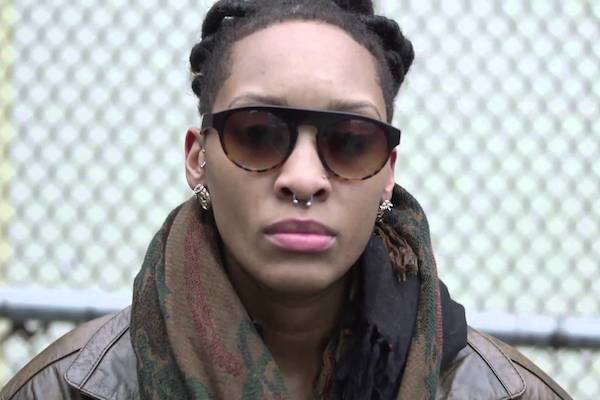On late morning August 29, 2015, the documentary Same Difference played to a sold out house on the second day of the Reel Affirmations Film Festival in Washington, D.C. This documentary explores facets of African-American lesbian culture with a particular focus upon lesbians whose gendered appearance, gender role, and gender identity all resonates with masculine norms.
The purpose of this documentary is to expand awareness of the specificity of the range of gender identities expressed amongst lesbians who identify as “Studs”. There are other names besides “stud” for identifying the varying types of masculine lesbians such as “AGs”, “Aggressive”, “Doms”, and “Butch” to name a few. However, the main message of the documentary is to discuss the multiple practices that everyone in the stud community knows about but few actually discuss: Within some niches of the African-American lesbian community, lesbians identified as masculine are expected to maintain perfect articulations of whatever masculine behavior, dress, mannerisms, and adornment are deemed appropriate for studs.
This documentary is about gender. More specifically, it is about the role gender policing tactics governing the casual, professional, and intimate realms of lesbians identified as studs. Beginning with dating a fellow masculine lesbian to electing natural childbirth to fulfill ones dream of parenting, we are allowed a rare glimpse into the lives of lesbians whose gender violation as masculine is additionally policed to ensure there are no additional violations particularly those deemed feminine.
The film provides generous snap shots of beautiful East coast cities such as Brooklyn, Philadelphia, Atlanta, and D.C. Each locality boasts lesbian communities as eclectic and vibrant as the characters who tell their stories. A fresh point of the documentary features two young studs that provide comic relief at staggered intervals throughout the film. These cameos are poignant interruptions particularly at heavy points when characters are embroiled in more complex contexts such as the scene when an older stud who is pregnant calls and confronts one of her facebook bullies – a much younger stud; the tension in the room is unmistakable. We watch as studs that violate the “gender rule of being a stud” plead their case for the right to be who they want to be without the additional concern of being persecuted by members of their own lesbian in-group.
The sound track is a collection of various musical and vocal artists interpreting the title of the film. The original nature of the music is a strong plus given the original nature and novel presentation of the subject matter. The filming comes off as organic, clean, and sharp. The visual transitions were consistently engaging and perfectly filled with visions of beautiful people, sunsets, and painfully honest interactions and reactions.
The interviews were conducted and presented in enough layers as to portray a clear picture of each individual narrative. For example, we meet a stud-on-stud couple from Atlanta. The couple tells us about a friend who hates the fact that they are a couple. We watch them challenge their friend in person and what I witnessed was this friend have a seeming sincere struggle to understand their attraction for one another. In other words, the documentary shows the world that there are some masculine lesbians who feel that masculine lesbians are “gay” (in a bad way) if in relationships with fellow masculine lesbians. The irony is almost too much to handle. But to see it play out in this documentary provides an exquisite entertaining teaching moment.
Another huge treat for seeing Same Difference during the special showing by Reel Affirmations was that filmmaker, Nneka Onuorah, and surprise guest commentator, Frenchie Davis, were on hand to answer questions from audience members. The best aspect of Same Difference is that this documentary takes a taboo subject and forces it into the light. Once the taboo is illuminated it makes way for new questions, new answers, new discussions, new ways of knowing. Same Difference shows that hegemonic notions of gender can and do travel from community to community. It teaches that even in queer spaces gender norms are regulated with similar vigor as gender norms are regulated in hetero-normative spaces.
There are so many amazingly interesting elements to talk about the documentary Same Difference. To be certain, those interested in exploring another glimpse into the complex world of gender identity, gender performances, gender roles, gendered taboos, etc., should be sure to make plans to see Same Difference at a Pride Celebration near you!



